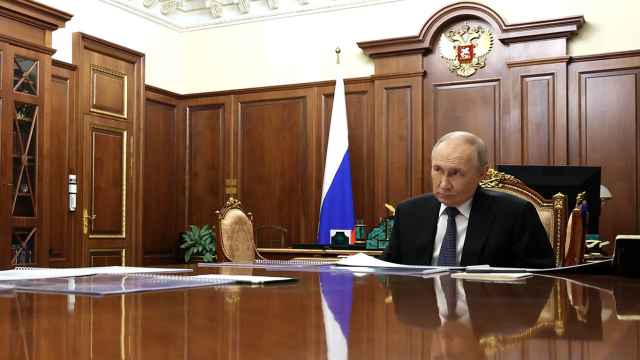Israeli Prime Minister Benjamin Netanyahu will visit Russia next week for talks with President Vladimir Putin on an expanding Russian military deployment in Syria, an Israeli official said Wednesday.
"The prime minister will present the threats to Israel emanating from the increased flow of advanced weaponry to the Syrian arena and from the transfer of lethal weaponry to Hezbollah and other terrorist groups," the official said.
Moscow has come under increased international pressure to explain its moves in Syria, where the Kremlin has been supporting Syrian President Башар Assad in a 4.5- year war.
On Monday, two U.S. officials said Russia had positioned about a half dozen tanks at an airfield at the center of a military buildup in Syria and that the intentions of Moscow's latest deployment of heavy equipment were unclear.
Western officials and a Russian source said last week that Russia was sending an advanced anti-aircraft missile system to Syria in support of Assad.
The Western officials said the SA-22 system would be operated by Russian troops. A U.S. official, who confirmed the information, said the system may be part of a Russian effort to bolster defenses at an airfield near Latakia, an Assad stronghold.
Even if Russians operated the missiles and kept them out of the hands of the Syrian army, the arrival of such an advanced anti-aircraft system could unsettle Israel, which in the past has bombed sophisticated arms it suspected were being handed to Assad's Lebanese guerrilla allies, Hezbollah.
Worried about accidentally coming to blows with Russian reinforcements in Syria, Israeli officials said last week they were in contact with Moscow. But Israel also made clear it would continue its policy of stopping advanced arms reaching Hezbollah.
The United States is using Syrian airspace to lead a campaign of air strikes against Islamic State. A greater Russian presence raises the prospect of the Cold War superpower foes encountering each other on the battlefield.
Russia has said it will continue providing military supplies to Syria and that its assistance to the Syrian army is in line with international law.
The Syrian civil war, in which about 250,000 people have died, has caused nearly half of Syria's prewar population of 23 million to flee, with many thousands attempting to reach Europe.
A Message from The Moscow Times:
Dear readers,
We are facing unprecedented challenges. Russia's Prosecutor General's Office has designated The Moscow Times as an "undesirable" organization, criminalizing our work and putting our staff at risk of prosecution. This follows our earlier unjust labeling as a "foreign agent."
These actions are direct attempts to silence independent journalism in Russia. The authorities claim our work "discredits the decisions of the Russian leadership." We see things differently: we strive to provide accurate, unbiased reporting on Russia.
We, the journalists of The Moscow Times, refuse to be silenced. But to continue our work, we need your help.
Your support, no matter how small, makes a world of difference. If you can, please support us monthly starting from just $2. It's quick to set up, and every contribution makes a significant impact.
By supporting The Moscow Times, you're defending open, independent journalism in the face of repression. Thank you for standing with us.
Remind me later.





